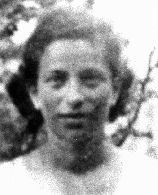You searched for: poland
<< Previous | Displaying results 111-120 of 1568 for "poland" | Next >>
-
Stanisławów
ArticleLearn more about the history of Stanisławów during the Holocaust and World War II.
-
Warsaw
ArticleIn October 1940, Nazi authorities established the Warsaw ghetto. Learn more about life in the ghetto, deportations, armed resistance, and liberation.
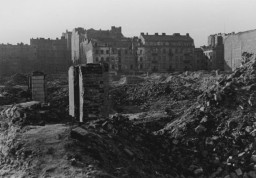
-
Trawniki
ArticleFrom July 1941-May 1944, the SS camp at Trawniki had several purposes. It is best known as the training site for auxiliary police guards used in Nazi killing centers. Learn more.
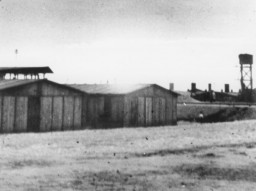
-
Aftermath of battle in Danzig
FilmThe Treaty of Versailles, imposed on Germany following its defeat in World War I, declared Danzig to be a free city jointly administered by Poland and the League of Nations. Germany bitterly resented the loss of this largely German city, which was also an important port on the Baltic Sea. The return of Danzig to Germany became a central focus of Adolf Hitler's foreign policy. Germany invaded Poland in September 1939. After the invasion of Poland, Germany unilaterally annexed Danzig. This German newsreel…
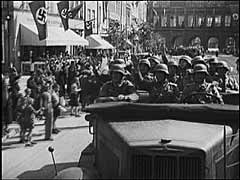
-
German Rule in Occupied Europe
ArticleThroughout the 1930s and 40s, Nazi Germany invaded much of Eastern and Western Europe. Learn more about German rule in occupied territories.
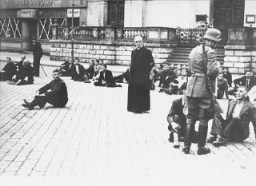
-
Jewish Community of Kalisz: Economy, Politics, Government
ArticleEconomic, governmental, and political life in the Jewish community of Kalisz between World War and World War II.
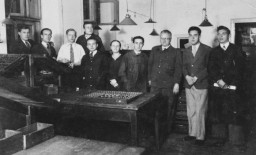
-
Welwel Kisielnicki
ID CardWelwel lived with his wife, Feiga, and their three children in the small, predominantly Jewish town of Kaluszyn, which was 35 miles east of Warsaw. The Kisielnickis were religious and spoke Yiddish in their home. Welwel was a merchant and often traveled, by horse and wagon, to Warsaw on business. 1933-39: The Kisielnicki family's hopes that the war wouldn't reach Kaluszyn have been shattered. Last week, a German plane flew over their town and dropped a bomb on people waiting in line outside a bakery.…
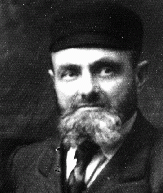
-
Mojsze Kisielnicki
ID CardMojsze, his wife Raizel and their three children lived 35 miles east of Warsaw in the small, predominantly Jewish town of Kaluszyn. Mojsze had gone to Jewish schools and supported Zionist ideals. By the early 1930s, he owned a wholesale grocery store, a restaurant and a gas station, all of which were located on the heavily traveled main road. 1933-39: Mojsze is at the World's Fair in Paris with his sister, Ruchel. She immigrated here in the 1920s with her husband, who owns a successful tailor shop. When…
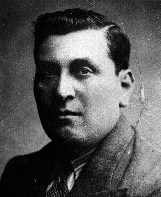
-
Raizel Kisielnicki
ID CardRaizel lived with her husband, Mojsze, and their three children in the small, predominantly Jewish town of Kaluszyn, which was 35 miles east of Warsaw. By the 1930s, Mojsze owned a grocery store, a restaurant, and a gas station, all of which were located together on the heavily traveled main road. The family lived in rooms in the same building as their business. 1933-39: Every day Raizel prepares the roast goose served in the family's restaurant. They have a bustling business, as many truck drivers stop…
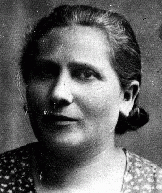
-
Idzia Pienknawiesz
ID CardIdzia was the older of two girls born to Jewish parents who lived 35 miles east of Warsaw in the small predominantly Jewish town of Kaluszyn. Idzia's father owned a liquor store and her mother was a housewife. Idzia was close friends with a group of Jewish teenagers who went to the same public school and spent much of their free time and vacations together. 1933-39: Normally, Idzia goes out with her friends on pleasant summer evenings. They like to stroll down the main street together and visit the sweets…
